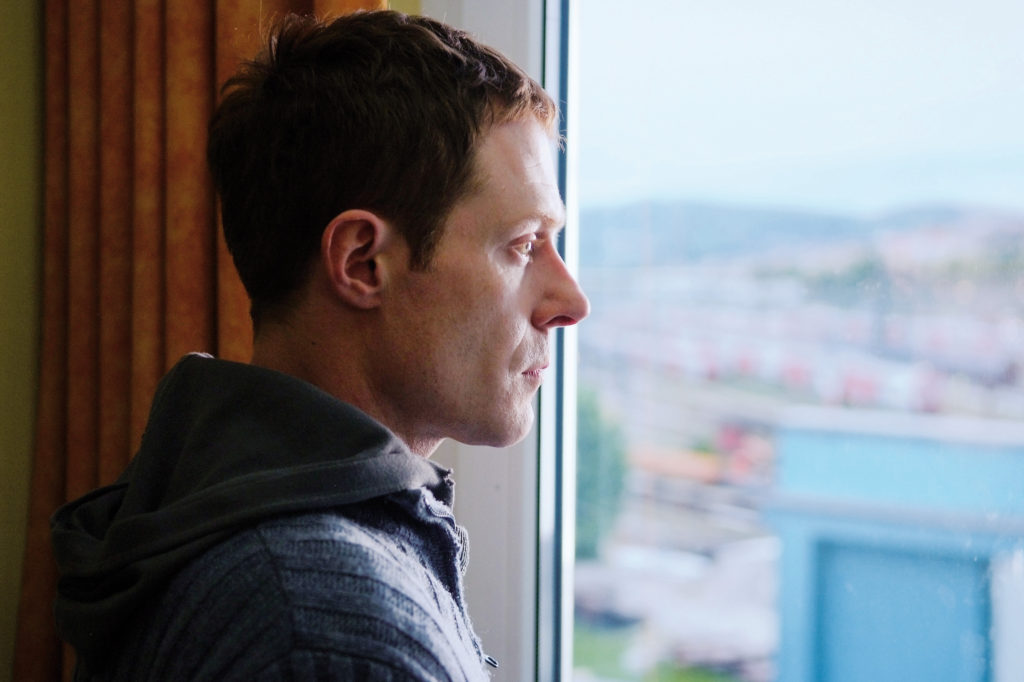2010. 101 minutes. Unrated.

Der Rauber – Nikolaus Geyrhalter Filmproduktion GmbH
European film is typically unfamiliar territory for me, and one which I tend to explore in small doses. A little Polanksi (Replusion) here, a little Schlondorff (Tin Drum) there; maybe a French one (Ann Parillaud’s, Sex is Comedy), the original Funny Games (Michael Haneke’s German serial killers and media satire, all uniquely un-American in style, plot, dialog, existential reflections,etc). Well, in Benjamin Heseinberg’s The Robber, inspired by TRUE EVENTS written in a novel by Martin Prinz, the quiet reserve of the main character, Johann (Andreas Lust), captured my attention immediately, and kept me guessing at what his true motivations were for leading a double life as a successful marathon runner/secret bank robber.
Set in Austria in the present day, The Robber opens with the newly released from prison Joann (played with controlled complexion and stoicism by the talented Lust) imprisoned for bank robbery six years ago or so. With a passion for running marathons, he attempts a normal relationship with Erika (Franziska Weisz), and continues his secret side hobby, despite the closeness between them that develops.
While trying to learn why he felt the need to exceed at both running and robbing, which resulted in my feeling stumped, I tried to think of what winning and escaping bring people. Winning obviously brings feelings of success, and it is with this that a sense of freedom is achieved.
Something in Joann’s ego must feel constantly liberated every time he runs, and hence he can’t stop running. He is addicted to the rush that running and winning provide. However, it doesn’t ever stop with one or two or fifteen wins. He is always running. He is in an infinite race against himself and his obsessive need to feel free; perhaps it is the most natural state for him.
Robbing is something he does equally well. He escapes initially, and what does escape make one feel? Free, of course, and empowered. He is able to perpetuate that feeling of getting away with his crime, over and over, after every robbery. He soon, manically, is doing it several times in one day, marrying his skillful athleticism with his adroitness in crime. In one amazing segment, he runs and runs and runs in one city block, targeting three different banks, and then is able to outrun police in cars by speedily weaving through apartment complexes, woods, and eventually landing in a man’s home. This leads to unintended violence that leads us to the film’s natural conclusion.
Eventually, time proves finite for Johann, what with his missing parole officer, coupled with Erika’s decision to “fess up” to the police after she learns of his extracurricular activities.
Although he is incapable of sustaining a stable relationship (which seems to represent a confinement to Johann and his need to be free), in the climactic final scene however, he does reach out to Erika via a cell phone call during his last fatal moments.
The relationship represents a desire to form a bond with someone on his part and proves that he is stuck and won’t grow in a relationship with Erika because of his greater need to pursue robbing, which satisfies his need for autonomy.
The Robber is subtle and gives you the chance to make sense of what is happening by the characters expressions and emotions. It is a quiet film with less dialog, but for this movie, less is more. Though the pacing is slow and the tone quiet, this film is worth a watch, if not for its existential point alone, then for the desire for freedom (perhaps rebellion) in modern society, and at what cost an individual is willing to achieve this.
